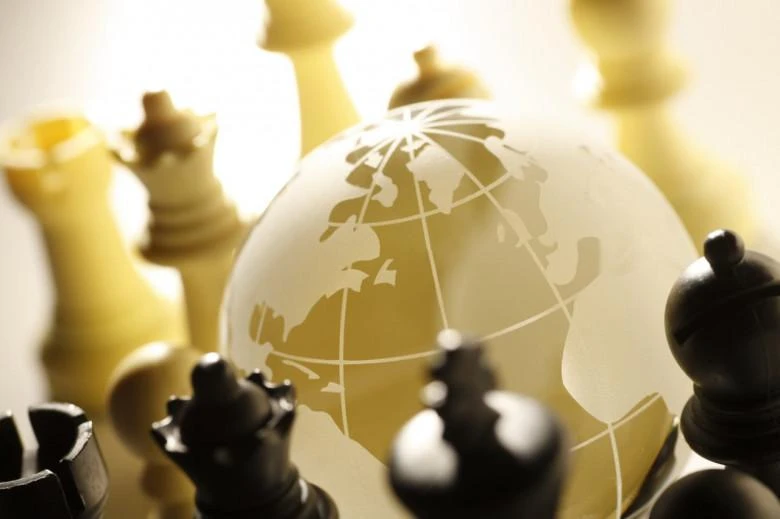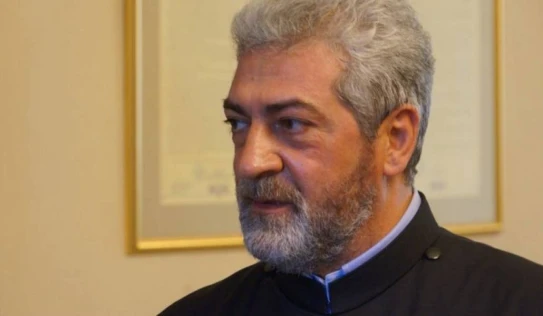"Fact" daily writes:
If years ago Turkey was associated as a NATO member state attached to the West, now the situation is completely different. In fact, Turkey has become an independent actor, which conducts a multi-vector foreign policy, trying to spread its influence in different directions. And in this matter, Ankara uses the key geographical position of its own country, because it is located at the intersection of East and West, North and South, and the straits entering the Black Sea are under Turkish control.
And the fact that, despite being a member of the Western military-political group, Turkey cooperates with Russia in a number of directions, even in such directions as the military and atomic energy fields, is remarkable. But it should be kept in mind that in terms of military strategy, these two countries are competitors of each other. And sooner or later, their interests will directly collide in a number of important issues. And there are all conditions for the escalation of contradictions, because Ankara continues to provide military-technical support to Ukraine, but at the same time wants to play the role of a mediator. This is why Russian Foreign Minister Lavrov says that Russia is surprised by Turkey's willingness to provide mediation services in Ukraine, when Ankara continues cooperation with Kiev in the military-technical field. The conflict between the interests of Turkey and Russia is also visible in Syria. Moscow supports the government led by Assad, and Turkey not only supports the anti-Assad forces, but Turkish troops regularly invade the territory of Syria in the name of fighting Kurdish separatists and do not leave. The South Caucasus can also become a point of intersection between the relations between Russia and Turkey. Turkey managed to fully establish itself in Azerbaijan, and the influence of Turkish capital is great in Georgia. It remains for Turkey to establish itself in Armenia and push Russia out of the South Caucasus. Therefore, Russia should always keep this circumstance in mind when building its foreign policy.
On the other hand, Turkey also aims to push Iran out of the region. It is no coincidence that Iran regularly declares that it is against the change of the recognized borders of the countries of the region and prevents the opening of the so-called "Zangezur Corridor". The implementation of pan-Turkish programs is against Tehran's interests, which could pave the way for the disintegration of Iran, which has a significant Turkic-speaking population. The competition between Turkey and Iran is also due to the fact that they are striving to take the leading positions in the Muslim world. And, in general, there is deep mistrust in Iran towards Turkey's policy. It is no coincidence that recently Tehran announced that Turkey tried more to promote its ATS than to help during the search for President Raisi's helicopter.
Turkey is also trying to go beyond the borders set by the West, but at the same time, it wants to use its leverage as a member of the Western military-political bloc. In general, Turkey wants to receive benefits from the West in terms of acquiring technologies. Ankara seeks first to acquire military technologies, and then to create its military industry and state-of-the-art weapons based on it. Let's keep in mind that it was as a result of acquiring various western technical parts that the Turkish company managed to create "Bayraktar" ATS, advertise them and sell them to dozens of countries. But the problem is serious, especially in the matter of fighter aviation. Turkish F-16 fighter jets are already old, because in the modern world military technologies are developing at a high speed. In order to acquire Russian C-400 anti-missile systems, the US left Turkey out of the F 35 fighter jet program, while in Washington they see no problem in providing these fighters to Greece. issue, as a result of which the balance of power changes in favor of Greece.
Therefore, Turkey is trying to acquire modernized F-16 fighters from the USA on the one hand, and European Eurofighter Typhoon fighters on the other. However, the agreement of all the countries included in the program of their construction: Spain, Italy, Great Britain and Germany, is key in acquiring the fighters of European origin. German Chancellor Olaf Scholz announces that the project to supply possible Eurofighter fighter jets to Turkey has been developed by Britain and is in the early stages. From Scholz's words, it can be assumed that Germany does not allow any progress in the implementation of the deal. The problem is that Germany and Turkey have differences on a number of issues. Those disagreements refer to the Kurdish problem, the topic of Greece and the ongoing war in Gaza. It is no secret that Germany supports Israel, and when Turkey acquires new fighters, it can create problems for Israel as well. So, over time, Turkey's growing ambitions are met with resistance from different sides. ARTHUR KARAPETIAN


